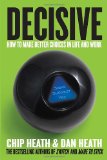new book – ‘Transparent Minds: A Study of Self-Knowledge’ by Jordi Fernandez
March 30, 2013
Transparent Minds: A Study of Self-Knowledge by Jordi Fernandez (Oxford University Press, USA, 2013)
Book description from the publisher:
We all seem to be capable of telling what our current states of mind are. At any given moment, we know, for example, what we believe, and what we want. But how do we know that? In Transparent Minds, Jordi Fernandez explains our knowledge of our own propositional attitudes. Drawing on the so-called “transparency” of belief, he proposes that we attribute beliefs and desires to ourselves based on our grounds for those beliefs and desires. The book argues that this view explains our privileged access to those propositional attitudes. Three applications are drawn from the model of self-knowledge that emerges: a solution to Moore’s paradox, an account of the thought-insertion delusion, and an explanation of self-deception. The puzzles raised by all three phenomena can be resolved, Fernandez argues, if we construe them as failures of self-knowledge. The resulting picture of self-knowledge challenges the traditional notion that it is a matter of introspection. For the main tenet of Transparent Minds is that we come to know what we believe and desire by “looking outward,” and attending to the states of affairs which those beliefs and desires are about.
See also: Author’s website






